The Magic Rosette (1878)
Género : Animación
Tiempo de ejecución : 1M
Director : Émile Reynaud
Sinopsis
Praxinoscope strip of a shifting rosette. Series 2, number 5.

Praxinoscope strip of a shifting rosette. Series 2, number 5.

Praxinoscope animation of a green-suited boy wearing a drum and cymbal. Series 1, number 10
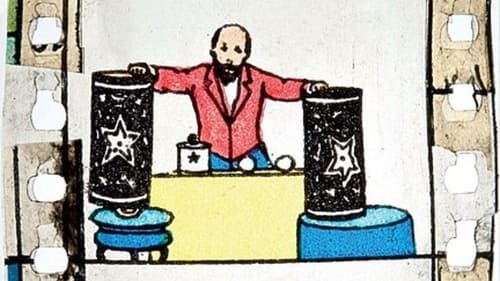
A patchwork of the first animated movies from the collections of La Cinémathèque française : Stroboscopic Discs (1833), Zoetropes (since 1867), Reynaud's Praxinoscope (1878-1879), plates of Muybridge and Anschütz (1880-1890), an unseen Marey's chronophotography (1889), Chromolithographs films (since 1897), including one inspired by the second Georges Méliès' film, "Une séance de prestidigitation" (1896), with a photographic version, unseen until now.

Early Praxinoscope strip showing a girl dancing on a tightrope. Series 1, Number 7.

Praxinoscope reel, Series 1, number 1

Praxinoscope of a girl in a blue dress skipping rope. Series 1, number 9

Praxinoscope animations of a girl in a blue dress bouncing a shuttlecock on a badminton racket. Series 2, number 2

Praxinoscope animation of a butterfly fluttering about a flower. Series 2, number 6.

Praxinoscope animation of a man spinning around a trapeze. Series 2, number 7.

Praxinoscope animation of a girl charming a flock of birds. Series 3, number 1.

Praxinoscope animation of two children playing on a homemade teeter-totter. Series 3, number 2.

Praxinoscope animation of a man sitting backwards in a char smoking a cigar, while a dog jumps up at him. Series 3, number 5.

Praxinoscope animation of a juggler balancing a spinning plate on their nose. Series 1, number 2.

Praxinoscope animation of a child laying down balancing a drum upon his upraised legs. Series 1, number 3.

Praxinoscope animation of a girl in a blue dress blowing soap bubbles. Series 1, number 5.

Praxinoscope animation of a chef rotating meat on a spit while spooning drippings over it. Series 1, number 6.

Praxinoscope animation of a woman feeding chickens. Series 1, number 4

Praxinoscope animation of a swimmer. Series 2, number 8.

Praxinoscope animation of an equestrian riding. Series 3, number 8.

Praxinoscope animation of a boy holding a hoop for two trained dogs to leap through. Series 1, number 8.
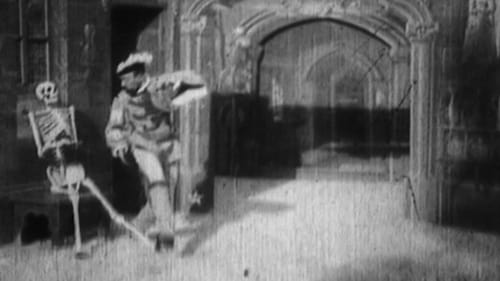
Le Manoir du diable or The House of the Devil, released in the United States as The Haunted Castle and in Britain as The Devil's Castle, is an 1896 French short silent film directed by Georges Méliès. The film tells the story of an encounter with the Devil and various attendant phantoms. It is intended to evoke amusement and wonder from its audiences, rather than fear. However, because of its themes and characters, it has been considered to technically be the first horror film, as well as potentially the first vampire film. The film opens with a large bat flying into a medieval castle, circling a room, and then suddenly changing into the Devil. Producing a cauldron, Mephistopheles conjures up a young girl and various supernatural creatures in an effort to scare two cavaliers, eventually succeeding in causing one to flee. Ultimately the remaining cavalier is confronted face-to-face by the Devil before reaching for and brandishing a large crucifix, which causes the Devil to vanish.

El profesor Barbenfouillis y cinco de sus colegas de la Academia de Astronomía viajan a la Luna a bordo de un cohete propulsado por un cañón gigante. Una vez sobre la superficie lunar, los audaces exploradores afrontan los muchos peligros que ocultan las cuevas del misterioso satélite.

A pre-cinematograph colour animation of the monkey playing his violin.

A father, a mother and a baby are sitting at a table, on a patio outside. Dad is feeding baby his lunch, while mum is serving tea.

The last remaining production of Le Prince's LPCC Type-16 (16-lens camera) is part of a gelatine film shot in 32 images/second, and pictures a man walking around a corner. Le Prince, who was in Leeds (UK) at that time, sent these images to his wife in New York City in a letter dated 18 August 1887.
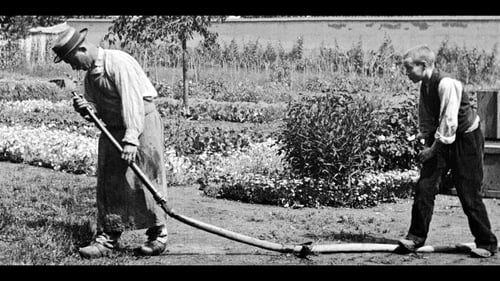
Rodado en 1895 por Louis Lumière, "El Regador Regado" está considerada como la primera película de ficción de la historia del cine. La historia es tan simple como la broma que un chico le gasta a un jardinero pisando la goma cuando éste riega un jardín. En el momento en el que el segundo inspecciona la manguera para ver qué ocurre, el muchacho levanta el pie y el hombre acaba empapado, empezando la persecución para darle su escarmiento al niño. Simple, directo y efectivo. Uno de los primeros gags de la historia del celuloide, que arrancó la carcajada del entonces inocente y sorprendido público. (FILMAFFINITY)
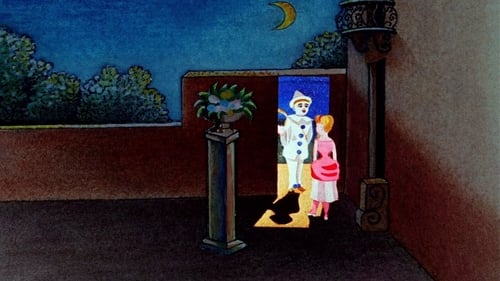
One night, Arlequin comes to see his lover Colombine. But then Pierrot knocks at the door and Colombine and Arlequin hide. Pierrot starts singing but Arlequin scares him and the poor man goes away.
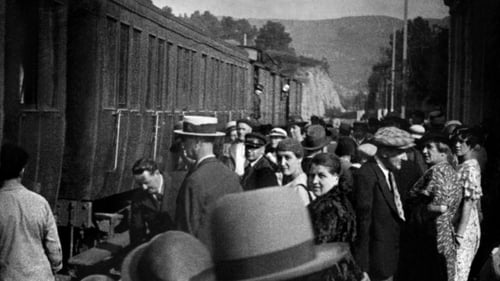
"L'Arrivée d'un train à La Ciotat" es sin duda uno de los filmes más famosos de la historia. La imagen de un tren llegando a una estación, pasando muy cerca de la cámara mientras reduce la velocidad, se convirtió rápidamente en una escena absolutamente icónica de esa curiosidad de reciente invención llamada "cinematógrafo".
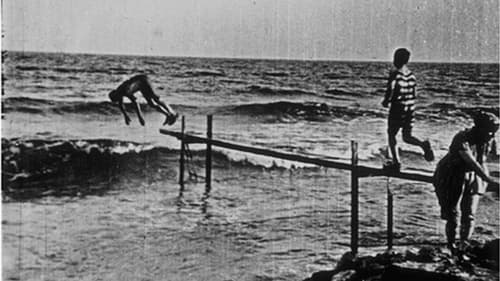
Several little boys run along a pier, then jump into the ocean.











